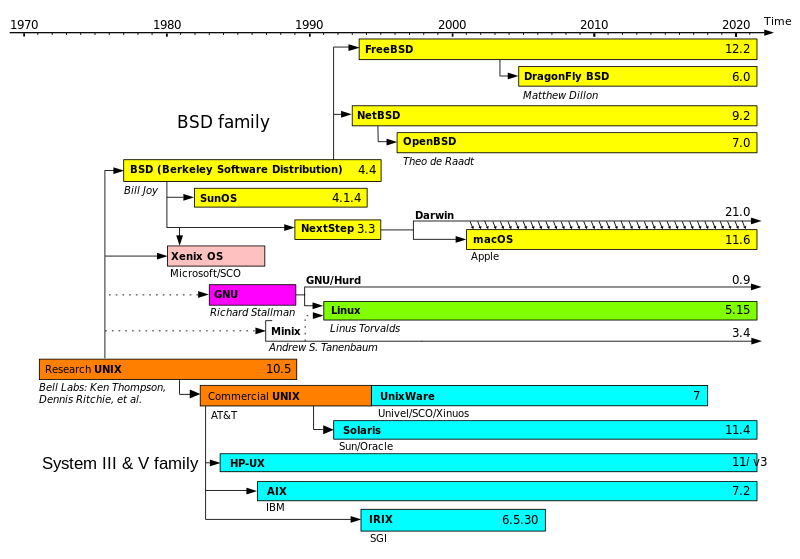I tried a lot of desktop environments and I think KDE is the best one, games runs much better than GNOME while the desktop is so smart and many features... I really tried so hard GNOME but the UI sucks, it is slower running games, there are missing options very important for me that KDE has, so for me GNOME is a NO for working/gaming purposes.
Aradia
But the act to put him on prison is a way to request the access for no longer asking. Depends on how much Pavel Durov can handle this torture.
Summary: France "requesting" Telegram keys.
Well, Linux is already on the desktop. I don't know what the blog mean.
About Wayland, it still need time even if people says it's ready and blabla, I even had issues with Flatpak+Wayland so... keep on X11 to make sure all works.
You can remove that, if you are good with Windows you can clean up that pretty much. The problem with Apple is their UI bugged, stupid bugs and lack of decent UI like grid Windows and more features that just Windows has by default, and KDE has even much more. Pretty stupid to pay for an Apple.
But on the same links you sent are saying:
A Linux-based system is a modular Unix-like operating system, deriving much of its basic design from principles established in Unix during the 1970s and 1980s.
What difference are between "*-based" and "*-like"? If the meaning are the same then I'm right, if Unix-based means must be like a fork directly from Unix and not just a copy build from 0, then yeah, you are right. And I think based and like are the same meaning.
Edit:
I also found this image: https://en.m.wikipedia.org/wiki/File:Unix_timeline.en.svg
Unix timeline:

Edit 2:
I just asked to ChatGPT and seems the AI can explain this:
"Unix-like" and "Unix-based" are terms used in the realm of operating systems, particularly in relation to the Unix operating system and its derivatives. While they may seem similar, they convey slightly different concepts:
Unix-like:
- "Unix-like" refers to operating systems that resemble Unix in terms of design, behavior, or functionality, but may not necessarily be directly derived from the original Unix codebase.
- These operating systems typically adhere to Unix-like principles and may incorporate similar features, commands, and programming interfaces.
- Examples of Unix-like operating systems include Linux, FreeBSD, OpenBSD, and macOS (which is based on a Unix-like kernel called Darwin).Unix-based:
- "Unix-based" specifically indicates operating systems that have a direct lineage or heritage tracing back to the original Unix operating system developed at Bell Labs in the 1970s.
- These operating systems often have their roots in the Unix codebase, either through direct licensing agreements, re-implementations, or forks of the original Unix source code.
- Examples of Unix-based operating systems include various commercial Unix variants such as Solaris, AIX, and HP-UX, which have historical ties to the original Unix.In essence, while both terms relate to systems that share similarities with Unix, "Unix-like" suggests a broader category of Unix-inspired operating systems, while "Unix-based" specifically denotes those with a direct lineage or relationship to the original Unix system.
So you are right, and they probably wanted to mean Unix-like. But we could still say based as both has some kind of relationship, and that's why Linux it's on Unix timeline from wiki.
What?... Premium is just like a tier, quality, aesthetic and exclusivity can be on premium tier perfectly, I don't know what you want to say with that.
Apple users are ignorant and buys Apple products lied by marketing thinking they're getting premium products, quality, aesthetic or exclusivity, whatever, but Apple tries to make them feel like a premium product while it's basically trash and worse than a Windows.
He says it's based, not that is Unix.
It's funny because I only see stupid bugs on Apple and people still thinks it's premium material. It's buggy shit (bad UIX), expensive as shit.
Exactly, never going to buy any Dell anymore... I'm so pissed with their XPS 13 issues.
You can track this kind of stuff on Mastodon also, join into a security instance (like https://infosec.exchange/explore) or start following them from another instance.
But that's the theory, when I run games on GNOME the games and desktop itself looks laggy, on KDE 4 I still noticed some lag while with KDE 5 I feel almost like playing on i3wm, with 3iwm you can run many games faster and with less lag than many Windows users (my Windows friends normally have more issues than me). While KDE 5 is my second-best option, there is no third for me. Or i3wm or KDE for gaming. And normally my PC specs stands higher than the recommended on many games (also new ones). If you can test it and provide some feedback would be great.